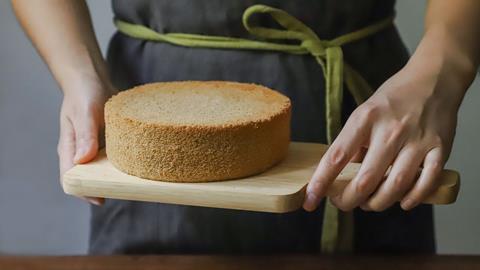Replacing sucrose with a substitute in your cake batter has a major impact on the final outcome of your baking, Flemish researchers have found. They reveal the details in npj Science of Food.
Baking a cake is not rocket science, but when you look at it from a purely scientific point of view, it is still quite a complicated process. For example, what if you want to reduce the amount of sugar (sucrose) in your cake, or replace it with sucrose substitutes? What does that do to your batter, your texture, and how does that affect the chemistry behind the cake? This is what Thibault Godefroidt, Jan Delcour and colleagues at KU Leuven have been investigating.
Sucrose actually forms hydrogen bonds with the water in the cake batter. These hydrogen bonds hold the water in the batter, as shown by NMR measurements. Sucrose also determines the viscosity and lightness of the dough. So if you want to replace it with something that is lower in calories but has the same cake consistency, you need to control these values.
The researchers tried maltitol, mannitol, oligofructose and inulin, or a combination of these. With maltitol, you can still bake a decent cake with properties very similar to the original sucrose. However, mannitol and inulin are not as good at retaining moisture, and while pure oligofructose can do this, the latter sugar has the problem of not being able to properly time the gelatinisation of starch and protein denaturation during the baking process. This can be avoided by mixing it with mannitol, which is beneficial to the dough.
Maltitol and a mixture of maltitol and oligofructose are therefore good sucrose substitutes in cakes. The recipes and baking methods are included, so the scientific baking enthusiast can follow the recipes exactly. The only thing missing was a taste test. If you do try it, we would love to hear the results.
Godefroidt, T. et al. (2023) npj Sci Food 7(52), DOI: 10.1038/s41538-023-00225-y













Nog geen opmerkingen